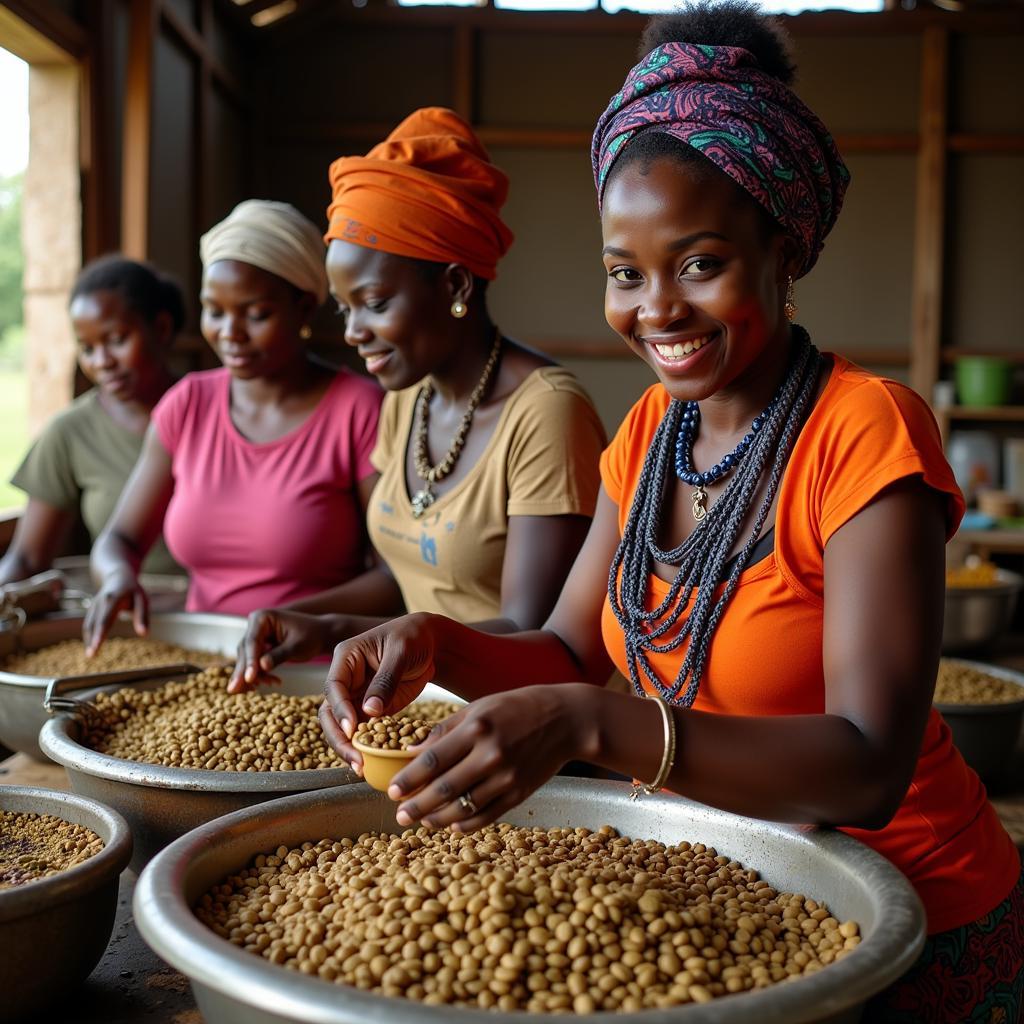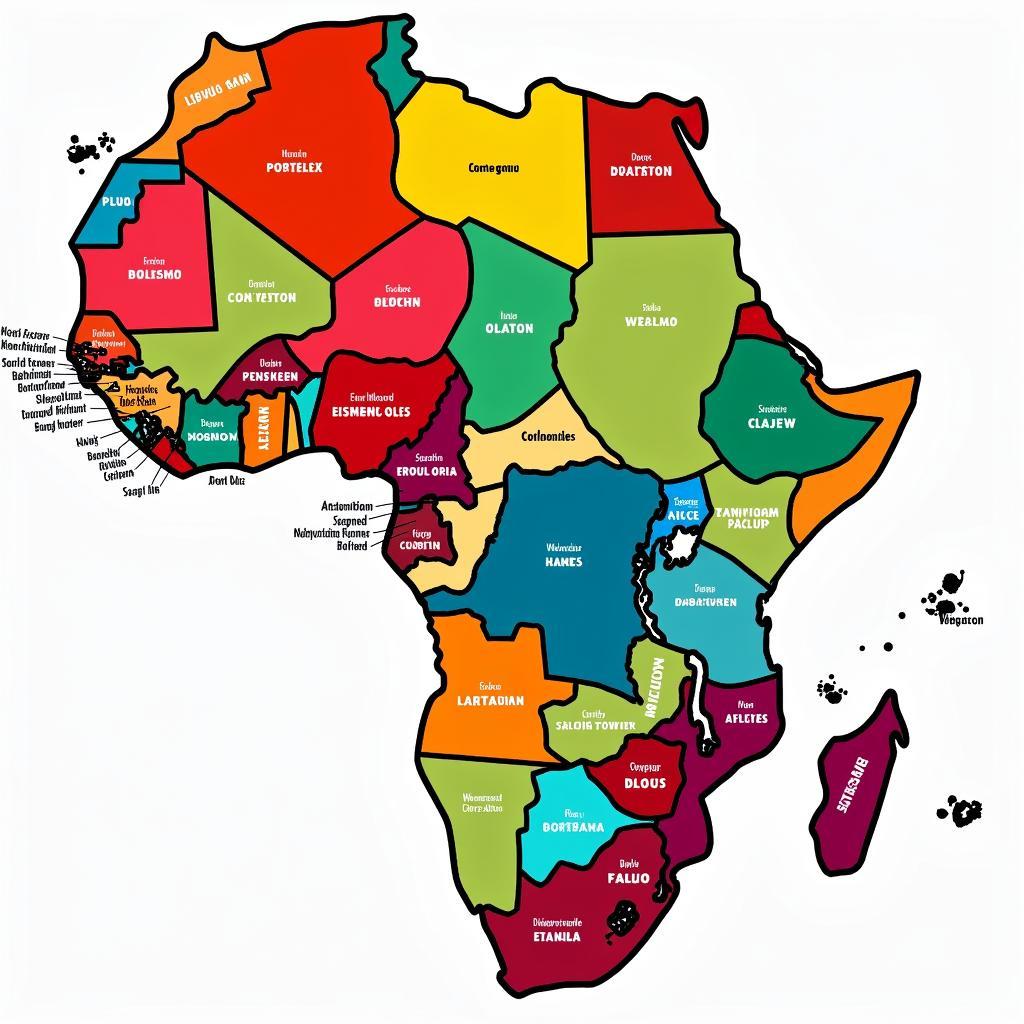The Legacy in Every Seed: Exploring African Heirloom Seeds
African Heirloom Seeds are more than just agricultural inputs; they are living embodiments of history, culture, and tradition. Passed down through generations, these seeds represent a direct link to the farming practices and culinary heritage of countless African communities. More than just a source of food, African heirloom seeds tell a story of resilience, adaptability, and the deep connection between people and their land.
A Journey Through Time: Understanding African Heirloom Seeds
The term “heirloom” evokes a sense of heritage, and rightly so. African heirloom seeds, some dating back centuries, have been carefully selected and saved by farmers for their desirable traits. These qualities might include resistance to pests and diseases, drought tolerance, unique flavors, or specific cultural significance. Unlike commercially produced hybrid seeds, which often prioritize uniformity and high yield for a single growing season, heirloom seeds are open-pollinated. This means they breed true-to-type, allowing farmers to save seeds from one year’s harvest to plant the next, ensuring the continuation of cherished varieties.
A Tapestry of Diversity: The Rich Variety of African Heirloom Seeds
The African continent boasts a stunning array of ecosystems, from the arid Sahara Desert to the lush Congo Basin rainforest. This environmental diversity has fostered an equally impressive variety of crops and, consequently, heirloom seeds. From staple grains like sorghum, millet, and fonio to vegetables such as African eggplant, okra, and amaranth, the range of African heirloom seeds is a testament to the continent’s agricultural ingenuity and adaptation. Each seed variety carries within it the legacy of the communities that cultivated it, reflecting their culinary preferences, traditional knowledge, and unique agricultural practices.
Preserving a Legacy: The Importance of African Heirloom Seeds
In a world facing increasing climate uncertainty and a globalized food system, African heirloom seeds take on a new level of importance. They offer:
- Food Security: Adapted to local conditions, heirloom seeds often exhibit greater resilience to drought, pests, and diseases, contributing to food security in the face of climate change.
- Nutritional Diversity: Many heirloom varieties possess unique nutritional profiles, offering a wider range of vitamins and minerals compared to some modern hybrids.
- Cultural Preservation: As living links to ancestral farming practices and culinary traditions, heirloom seeds play a vital role in maintaining cultural identity and heritage.
- Biodiversity Conservation: Preserving heirloom seeds contributes to overall biodiversity, strengthening ecosystems and agricultural resilience.
Facing the Future: Challenges and Opportunities for African Heirloom Seeds
Despite their importance, African heirloom seeds face challenges:
- The Rise of Hybrid Seeds: The increasing promotion and distribution of hybrid seeds can lead to the neglect and potential loss of traditional varieties.
- Climate Change: Shifting weather patterns and increasing climate extremes threaten the viability of some heirloom crops.
- Lack of Awareness: A lack of awareness among younger generations about the importance and value of heirloom seeds can lead to their abandonment.
However, amidst these challenges, opportunities exist:
- Seed Saving Initiatives: Grassroots movements and organizations are working to revive and preserve African heirloom seeds through seed banks and community seed-sharing programs.
- Chef-Driven Advocacy: Chefs across Africa and globally are embracing heirloom ingredients, raising awareness and creating market demand for these unique products.
- Empowering Future Generations: Educating young people about the importance of seed saving and traditional agricultural knowledge can empower them to become custodians of their food heritage.
Conclusion
African heirloom seeds are more than just agricultural inputs; they are seeds of resilience, carrying within them the potential for a more sustainable and equitable food future. By recognizing their value, supporting seed-saving initiatives, and empowering future generations to become guardians of their agricultural heritage, we contribute to preserving not only unique plant varieties but also the rich tapestry of culture and tradition that they represent.



